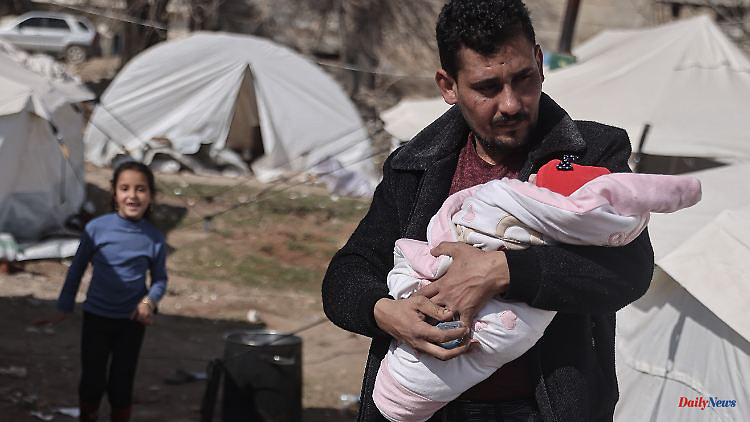After the earthquake disaster, support in Turkey is rolling in very quickly, but little is arriving in neighboring Syria. Border crossings remain sealed for a long time, the UN is failing according to its own assessment, and the region is already doing badly before the quake. An overview of actors and problems.
Even more than two weeks after the devastating earthquake that killed tens of thousands, the victims in north-west Syria are hardly receiving any help. The reason for this are logistical and political obstacles in the country, which has been at war for twelve years. Aid supplies are urgently needed in the north-west, because 90 percent of the more than four million inhabitants of the region were dependent on support even before the natural disaster.
How does the UN help?
While the earthquake zones controlled by the government are well supplied from Damascus, aid to the rebel-controlled parts of the country in the north-west can only get across the Turkish-Syrian border. At the time of the quake, the Bab al-Hawa crossing was the only one the United Nations could use without permission from the Syrian government.
However, the access road to the border post was damaged by the quake and the transport staff were also affected by the disaster, meaning that the first UN convoy was only able to pass three days later. A week after the earthquake, Damascus allowed the UN to use two more border crossings - Bab al-Salama and Al Rai - for three months.
The United Nations said almost 200 trucks with relief supplies had been sent to northwestern Syria since the quake. Ten trucks passed the Al Rai crossing for the first time on Monday. For comparison: Last year, according to the aid organization Doctors Without Borders, there were an average of 145 trucks per week.
The local aid organizations criticize the sluggish deliveries. The UN has committed "a crime against the Syrian people," the Syrian organization White Helmets said. UN Emergency Relief Coordinator Martin Griffiths acknowledged that the United Nations had "abandoned the people of north-west Syria".
How do NGOs help?
In contrast to the UN, non-governmental organizations can also send aid supplies through other border crossings with Turkey's approval. On Sunday, 14 MSF trucks passed through the Al Hammam checkpoint en route to north-western Syria.
Many international organizations are also making money available to helpers in north-west Syria so that they can buy what they need locally. However, with millions of people homeless since the quake, blankets, tents and food have become scarce and prices have skyrocketed, according to the organization Action Aid.
Who Controls the Northwest?
The Islamist group Hayat Tahrir al-Sham (HTS) controls more than half of the province of Idlib, the last major rebel stronghold in Syria, where many displaced people from other parts of the country live. HTS controls the Bab al-Hawa border crossing and is classified by the US as a terrorist organization.
Around 30 pro-Turkish Syrian groups share control of the border area further east, stretching from Jarablus to Afrin. Some 1.1 million people live there and suffer abuses, such as arbitrary arrests, that these groups are accused of.
How are the rebels doing?
Many aid organizations distrust the Syrian authorities' commitment to send aid to rebel-held areas, and do not want to depend on the government's goodwill. HTS leader Abu Mohammed al-Jolani refused help from government territory. For their part, the pro-Turkish factions turned away an aid convoy from the Kurdish Autonomous Administration.












